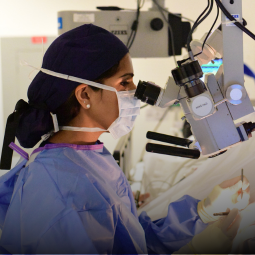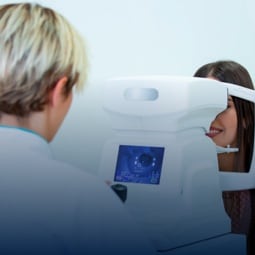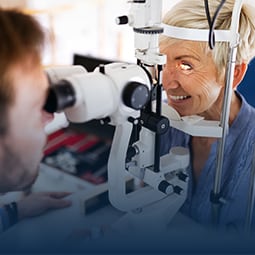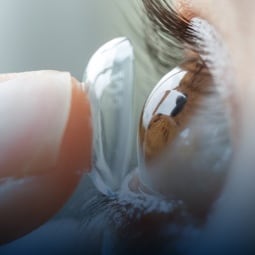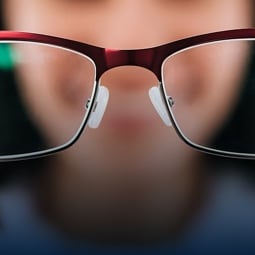
Diabetes Can Affect Your Eye Health
Diabetes can be a complicated condition to live with. It can affect many different aspects of your health, but did you know that it can significantly impact your eye health?
Having diabetes puts you at a higher risk of several eye conditions. With our experience and access to advanced technology, we can identify issues early and help manage your condition.
At Center For Sight, our experienced physicians can help you manage your diabetes while protecting your vision and eye health.
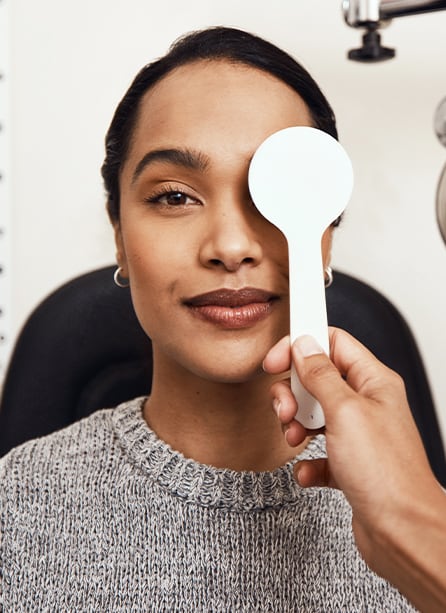

Diabetes & Your Vision
Someone with diabetes cannot produce enough insulin or cannot effectively use the insulin their body produces. Insulin regulates our blood sugar levels, and with improper insulin control, your blood sugar levels can increase, causing problems throughout the body, including your eyes.
High amounts of blood sugar can damage your retina, causing vision problems and potentially leading to severe vision loss.

Diabetes-Related Eye Conditions
If you have diabetes, you’re at a higher risk of developing diabetic eye diseases, potentially leading to vision loss or blindness.
Diabetic Retinopathy
Diabetic retinopathy occurs when diabetes damages the blood vessels, leading to blurry, distorted vision and potential blindness. This disease has 2 stages: nonproliferative and proliferative diabetic retinopathy.
As blood vessels in the retina become damaged, they can close off. As a result, new, abnormal blood vessels grow. These weak blood vessels can bleed into the retina and develop scar tissue.
Diabetic Macular Edema
Diabetic macular edema is a complication of diabetic retinopathy and a common cause of vision loss for people with diabetes. Leaking fluid caused by diabetic retinopathy can cause the macula to swell, leading to potential vision loss.
Diabetic Eye Exam Frequency
When you visit Center For Sight, we’ll always give you a personalized experience. The frequency of diabetic eye exams can vary from person to person, and we can help you find a schedule that fits your eye health needs. We typically follow the recommended guidelines set by the American Diabetes Association, which outline that:
- Adults with type 2 diabetes should receive their first diabetes eye test after their diagnosis
- Anyone with type 1 diabetes should have their first diabetic retinal eye exam within 5 years of diagnosis
- People with diabetes need to have an eye exam at least once a year
We Can Help
Don’t let diabetes affect your vision. With the expertise of the physicians at Center For Sight, we can help protect your eye health and offer recommendations for how you can manage your diabetes.
Book your next diabetic eye exam today to see how we can support your health.

Our Locations

News
Cataract vs Glaucoma: Understanding the Key Differences
CataractsCataracts and glaucoma are two of the most common eye diseases affecting millions of people in the United States, especially those over age 40. While both conditions impact vision, they are very different in cause, symptoms, treatment, and outcomes. A cataract is the clouding of the eye’s natural lens, usually treatable with surgery. Glaucoma is […]
Read More… from Cataract vs Glaucoma: Understanding the Key Differences
How Diabetes Affects Your Eyes: What Every Patient in the U.S. Should Know
Adult Eye ExamsDid you know that diabetes-related eye disease is one of the leading causes of preventable blindness in the U.S.? Yet, most people living with diabetes don’t realize how quietly and dangerously it can affect their vision. If you’ve been managing your blood sugar, taking your medications, and watching your diet, you might feel like you’ve […]
Read More… from How Diabetes Affects Your Eyes: What Every Patient in the U.S. Should Know
Benefits of Anti-Reflective Coating Glasses for Daily Life
Eye HealthyReviewed By: Todd Lang, O.D. Ever noticed how your glasses reflect everything except what you’re trying to see? Your monitor. Headlights. Overhead lights. That awkward glare in every photo. You’re left squinting through reflections, feeling like your glasses are working against you, not with you. That’s where anti-reflective coating glasses come in. They don’t just make […]
Read More… from Benefits of Anti-Reflective Coating Glasses for Daily Life
Cataract vs Glaucoma: Understanding the Key Differences
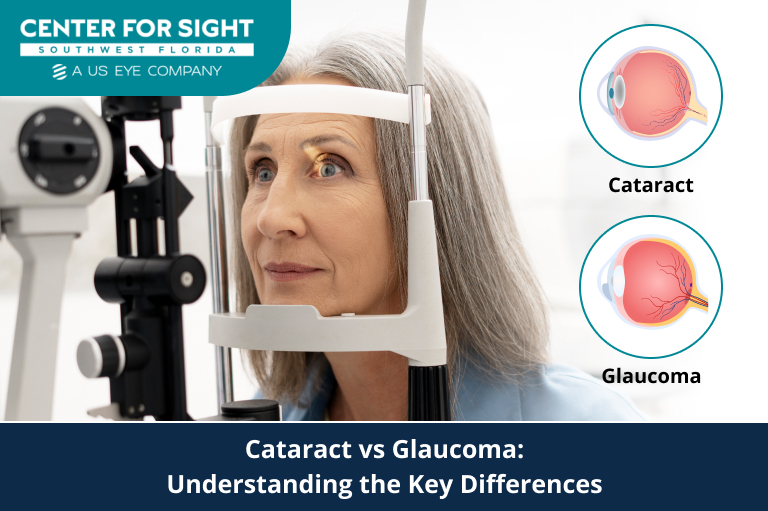
Cataracts and glaucoma are two of the most common eye diseases affecting millions of people in the United States, especially those over age 40. While both conditions impact vision, they are very different in cause, symptoms, treatment, and outcomes. A cataract is the clouding of the eye’s natural lens, usually treatable with surgery. Glaucoma is […]
Read More… from Cataract vs Glaucoma: Understanding the Key Differences
How Diabetes Affects Your Eyes: What Every Patient in the U.S. Should Know
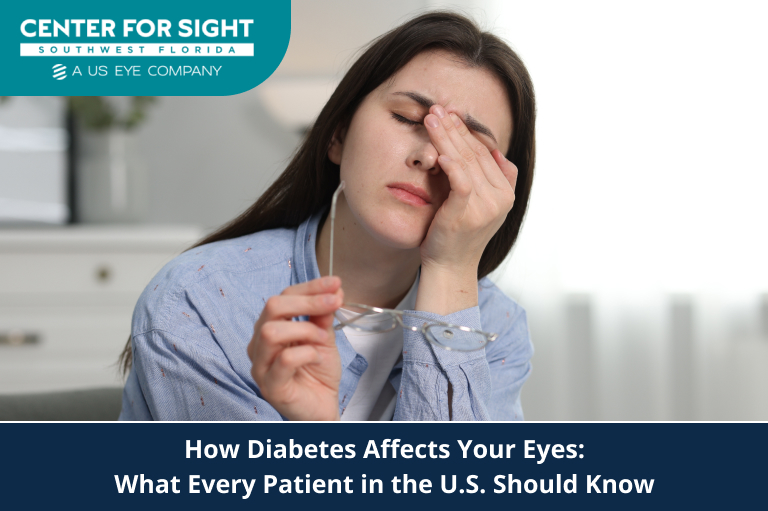
Did you know that diabetes-related eye disease is one of the leading causes of preventable blindness in the U.S.? Yet, most people living with diabetes don’t realize how quietly and dangerously it can affect their vision. If you’ve been managing your blood sugar, taking your medications, and watching your diet, you might feel like you’ve […]
Read More… from How Diabetes Affects Your Eyes: What Every Patient in the U.S. Should Know
Benefits of Anti-Reflective Coating Glasses for Daily Life

Reviewed By: Todd Lang, O.D. Ever noticed how your glasses reflect everything except what you’re trying to see? Your monitor. Headlights. Overhead lights. That awkward glare in every photo. You’re left squinting through reflections, feeling like your glasses are working against you, not with you. That’s where anti-reflective coating glasses come in. They don’t just make […]
Read More… from Benefits of Anti-Reflective Coating Glasses for Daily Life
Check Us Out On Facebook


We are a proud partner of US Eye, a leading group of patient-centric, vertically integrated multi-specialty physician practices providing patients with care in ophthalmology, optometry, dermatology and cosmetic facial surgery.




